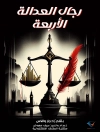The ‘J. M. Barrie Ultimate Collection: 90+ Titles in one Volume (Illustrated)’ presents an expansive tapestry of Barrie’s literary genius, showcasing not only his famed works such as ‘Peter Pan’ but also his lesser-known plays, novels, and essays. This meticulously curated collection encapsulates Barrie’s distinctive narrative style, characterized by its whimsy and emotional depth, often exploring themes of childhood, imagination, and the bittersweet nature of growing up. Richly illustrated, this volume offers readers a visual complement to the text, enhancing the enchantment of Barrie’s storytelling and providing context for the cultural landscape of Edwardian England from which he emerged. J. M. Barrie (1860-1937) was a Scottish author whose works reflect both personal experiences and societal critiques of his time. Born in a small village, Barrie’s interactions with child characters—including the inspiration for Peter Pan derived from his relationship with the Llewelyn Davies boys—shaped his understanding of youth and the transient nature of innocence. A prolific playwright and novelist, his mastery of language and keen observation enabled him to delve into the complexities of human experience, often tinged with nostalgia. This ultimate collection is a must-read for both long-time fans and new readers alike, as it invites them to explore the multifaceted world of Barrie’s imagination. The compilation allows for a deeper appreciation of his lifelong commitment to capturing the spirit of youth, making it an essential addition to any literary library.
Sobre el autor
Sir James Matthew Barrie, born on May 9, 1860, in Kirriemuir, Scotland, was a novelist and playwright whose enduring fame rests on his creation of Peter Pan, the boy who refused to grow up. Barrie attended the University of Edinburgh and began his foray into literature as a journalist. His transition to fiction was marked by adept characterization and a whimsical wit. ‘The Little Minister’ (1891) brought him to the public’s attention, and he followed it with a successful series of novels, including ‘Sentimental Tommy’ (1896) and ‘Tommy and Grizel’ (1900). However, his unique literary acclaim stems from his works for the stage. ‘Peter Pan, or The Boy Who Wouldn’t Grow Up’ (1904) was Barrie’s most iconic play, fulfilling his fantastical literary style. The remarkable thematic complexity of Barrie’s writings, where he interweaved whimsy with depth, addressing the juxtaposition of innocence and experience, have led scholars to consider his influence on children’s literature profound. Barrie’s knighthood in 1913 for services to literature, and the Order of Merit received in 1922, affirmed his status within the British literary canon. His assemblage of works was posthumously compiled in ‘J. M. BARRIE Ultimate Collection: 90+ Titles in one Volume (Illustrated)’, ensuring his literary legacy persists. Drawing upon a rich portfolio of novels, plays and short stories, Barrie’s prolific career and contribution to English literature remain celebrated to this day.












